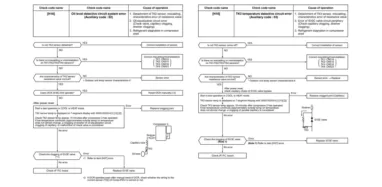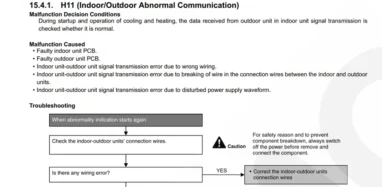Many times, HVAC systems have been named as the culprit behind the many symptoms associated with colds, such as dizziness, dry cough, headache, nausea, and fatigue. While some people hold firmly to this notion, some others believe that HVAC systems do not directly make you sick but can only create a sickness-inducing environment.
The divergent opinions between these schools of thought have led to endless research about the possibility of an HVAC system causing sickness. That’s why we shall be looking into one of the most frequently asked questions about HVAC systems – can heat pumps make you sick? The revelations here are so compelling, and I bet you don’t wanna miss out.
Can the heat pumps make you sick?
Yes, heat pumps can make you sick. Heat pumps, as well as close substitutes like furnaces or forced air systems, have the potential to make you sick. Although most times when this happens, it is caused lack of proper cleaning maintenance.
Most houses are air sealed and well insulated so that the quality air produced by these heating and cooling systems is retained indoors. However, when these appliances get dirty, they become a breeding ground for molds, mildew, and other bacteria that will pollute indoor air with allergens and viruses. And since our rooms are air sealed, they also lurk around the room, thereby contaminating the air we breathe in. Situations like this can lead to headaches, flu-like symptoms, allergies, and lightheadedness.
Also, apart from dirty units, heat pumps can cause dry air, which can lead to dehydration, dry skin, dermatitis, asthma, eye irritation, nosebleeds, sore throats, high-stress levels, and many more. All these symptoms can lead to health complications if proper care is not taken.
Can a heat pump overheat?
Yes, a heat pump can overheat. Just like every other home appliance can overheat due to overworking and faulty parts, your heat pump can suffer the same fate for similar reasons, only that the possible cause is a little extended beyond those two common factors when it comes to heat pumps. Check below for more details.
Leakages
Refrigerant to a heat pump is like the blood that flows through our veins. Without the refrigerant, a heat pump cannot function properly. Although refrigerant doesn’t get lost easily, when there are leakages, they get wasted, drastically reducing the quantity needed by the heat pump to function. When this happens, your heat pump will start to overwork itself which may lead to overheating.
Clogged air filter
Apart from your refrigerant level, one other thing that needs close monitoring is the air filter of your unit due to the essential role it plays in the overall heating process: it ensures only clean air is transferred into indoor spaces.
Since they sieve dirt, they are bound to retain some which you are expected to clean. If you leave this dirt, it will clog the air filter, and only a few airs will be transferred indoors. This may cause your heat pump to work harder to meet up with your heating requirement, and after a long time, your heat pump may overheat.
Dirty condenser coil
The condenser coil of your heat pump also plays a significant part in heating your room as they are responsible for releasing heat. With time, the condenser coil can also accumulate dust and dirt, and when this is left uncleaned, it reduces its efficiency, which will also cause your heat pump to work beyond the usual standard. This can as well cause your heat pump to overheat.
Can heat pumps catch fire?
Yes, a heat pump can catch fire. This is because a heat pump is an electro-mechanical device that is prone to overheating, which means technically, it also is prone to catching fire. Therefore, it will be in your interest to always avoid incidences that may lead to your device catching fire. Your first approach to this should be to avoid getting your heat pump overheated at all costs.
Can a heat pump give you a headache?
Yes, a heat pump can lead to headaches. If you continue to use your heat pump for long hours at some point, the air in your room will dry out. One of the many side effects of inhaling dry air is headaches. If this is something, you experience a lot, getting a humidifier will help solve this problem.
Do heat pumps give off fumes?
No, heat pumps not really give off fumes. If you notice a fume or can perceive a burning smell from your unit, it is an indication that something is wrong. Several reasons may account for this, so it will be advisable for you to call a technician to come and check on the unit.
Are heat pumps bad for your health?
No, heat pumps are not bad for your health. A heat pump is a safe heating option as they rely majorly on electricity rather than burning fuel which may lead to the emission of carbon monoxide that can be harmful to health. This is one of the reasons heat pumps are considered a safer alternative to combustion-based heating systems.
Do heat pumps cause sinus problems?
Yes, a heat pump can cause sinus problems. Dry heat is one of the causes of sinus problems, and since heat pump is liable to cause dry air, there’s also a possibility that they may cause sinus problem.
What is the downside to using heat pumps?
Heat pumps may seem to be a perfect heating option considering the many benefits that come with using them. However, the heat pump also has some weaknesses, with low-efficiency levels during extremely cold weather and the high cost of installation topping the list.


